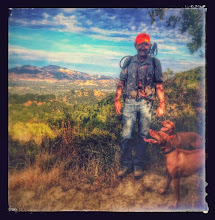New Evidence Shows Link Between Spaying, Neutering and Cancer
June 13, 2014
By Dr. Becker
A recent study raises even more questions about traditional spay/neuter practices for U.S. dogs.
The study, titled "Evaluation of the risk and age of onset of cancer and behavioral disorders in gonadectomized Vizslas,"1 was conducted by a team of researchers with support from the Vizsla Club of America Welfare Foundation. It was published in the February 1, 2014 issue of the Journal of the American Veterinary Medical Association.
Like previous research on Rottweilers and Golden Retrievers, the results of the Vizsla study are a call to action to take a closer look at current neutering recommendations.
Vizsla Study Results
The Vizsla study involved 2,505 dogs, and reported these results:
- Dogs neutered or spayed at any age were at significantly increased risk for developing mast cell cancer, lymphoma, all other cancers, all cancers combined, and fear of storms, compared with intact dogs.
- Females spayed at 12 months or younger, and both genders neutered or spayed at over 12 months had significantly increased odds of developing hemangiosarcoma, compared with intact dogs.
- Dogs of both genders neutered or spayed at 6 months or younger had significantly increased odds of developing a behavioral disorder, including separation anxiety, noise phobia, timidity, excitability, submissive urination, aggression, hyperactivity, and/or fear biting. When it came to thunderstorm phobia, all neutered or spayed Vizslas were at greater risk than intact Vizslas, regardless of age at neutering.
- The younger the age at neutering, the earlier the age at diagnosis with mast cell cancer, cancers other than mast cell, hemangiosarcoma, lymphoma, all cancers combined, a behavioral disorder, or fear of storms.
- Compared to intact dogs, neutered and spayed dogs had a 3.5 times higher risk of developing mast cell cancer, regardless of what age they were neutered.
- Spayed females had nine times higher incidence of hemangiosarcoma compared to intact females, regardless of when spaying was performed, however, no difference in incidence of this type of cancer was found for neutered vs. intact males.
- Neutered and spayed dogs had 4.3 times higher incidence of lymphoma (lymphosarcoma), regardless of age at time of neutering.
- Neutered and spayed dogs had five times higher incidence of other types of cancer, regardless of age of neutering.
- Spayed females had 6.5 times higher incidence of all cancers combined compared to intact females, and neutered males had 3.6 times higher incidence than intact males.
Go to link at top for complete article.







